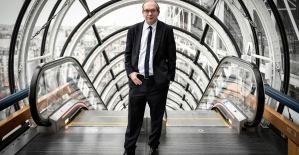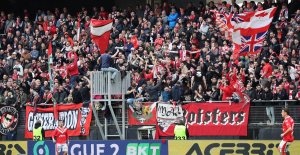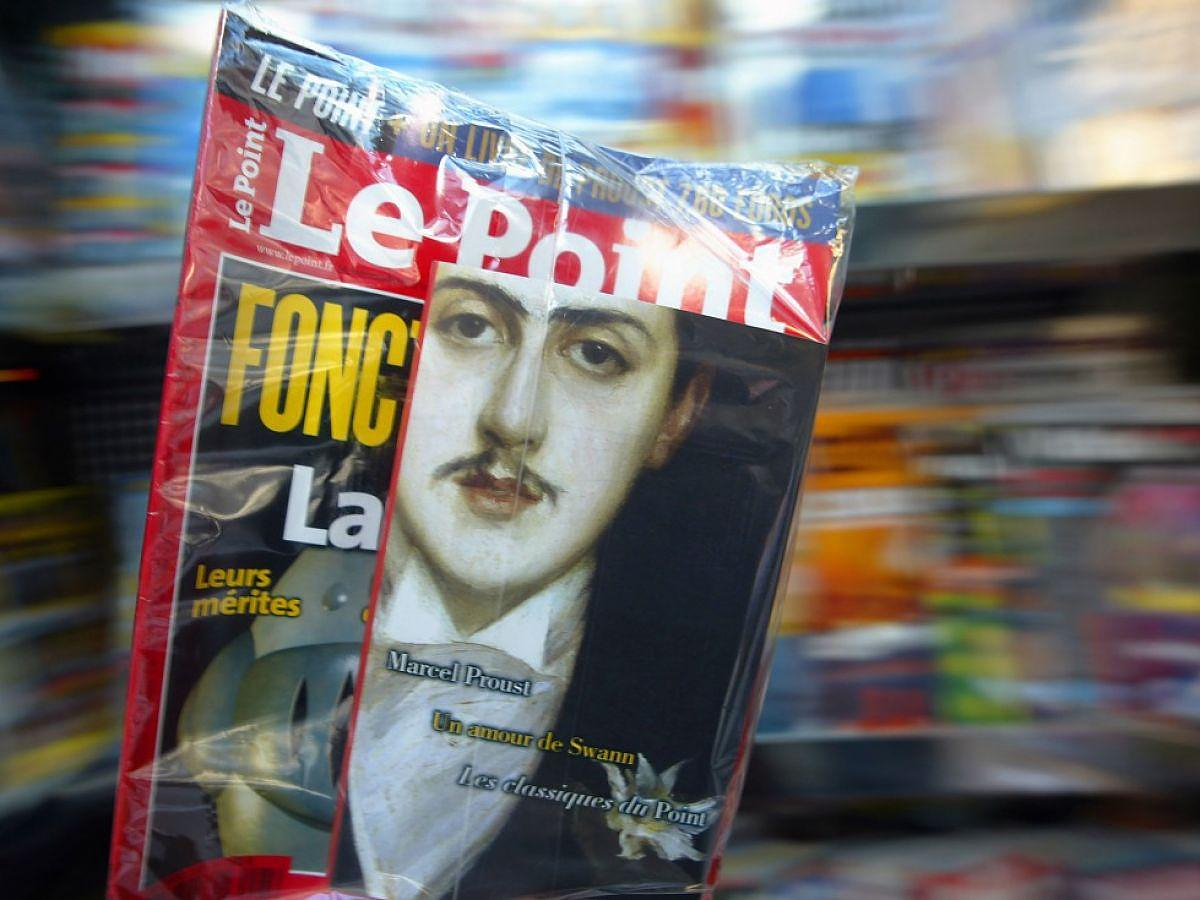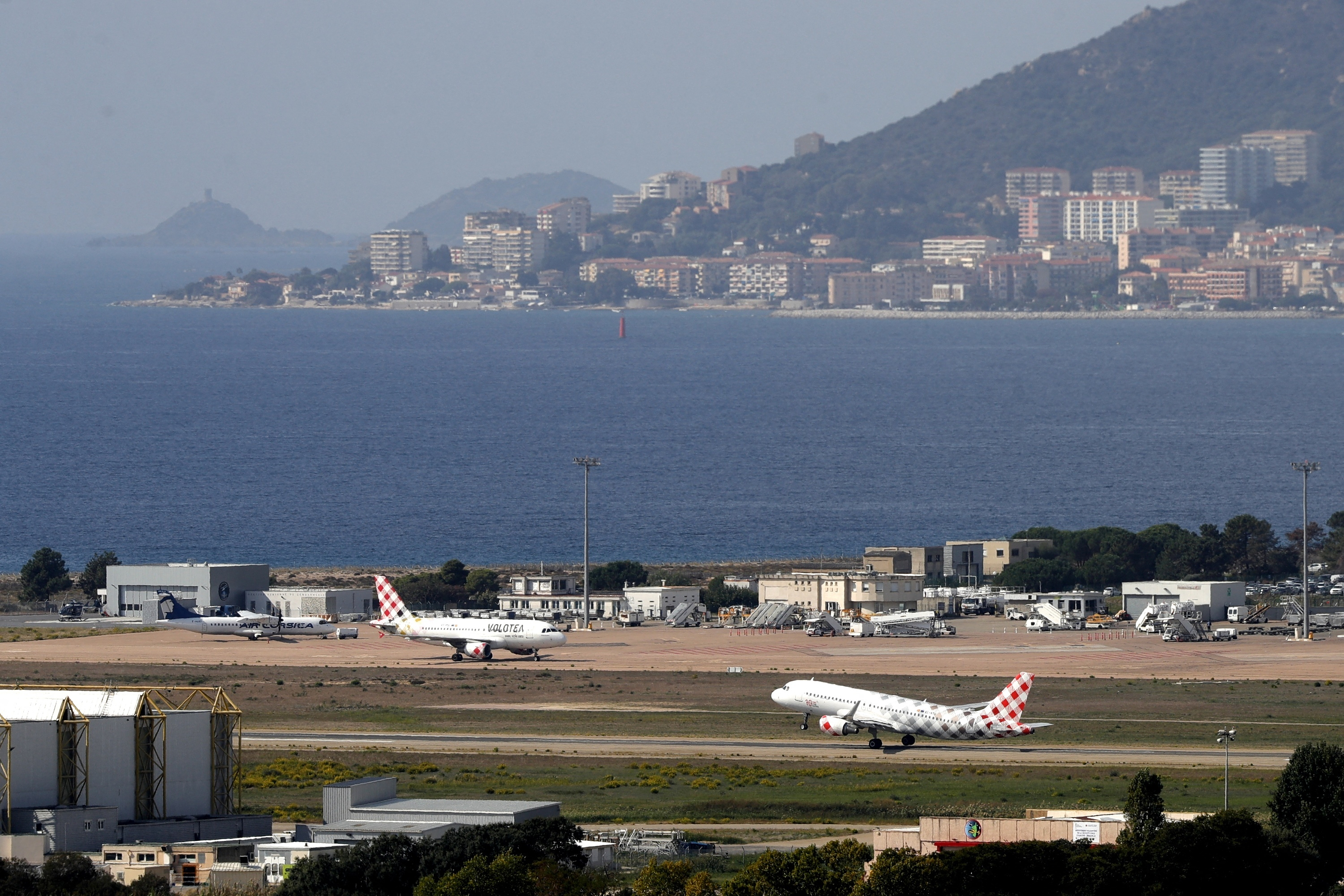In the living quarters of Christoph Freiherr von Wrede you feel like you have been transported to another time. Furnished with centuries-old furniture and oil paintings, the salon complete with deer antlers is reminiscent of the country estate of a noble family. And the furniture also comes from such a building: Melschede Castle in Sauerland. However, von Wrede has not lived there for twelve years, but in a spacious old building on the banks of the Rhine in Düsseldorf. There is no staff here, the host serves stollen and pastries with the self-brewed espresso.
The 85-year-old has written down the history of his Westphalian-Rhenish family and his own CV in a book that has just been published. At first he wanted to tell his two children and five grandchildren about his childhood and youth. "If I don't write it down, it's gone." Above all, it's about how Melschede Castle, which had belonged to his family since the 17th century, was lost about ten years ago. And how von Wrede finally coped with this loss, which he was not to blame for, but which fell during his time as lord of the castle.
As the eldest son, he was destined from an early age to take over the ancestral home of the family with more than 600 hectares of agriculture and forestry, where he grew up with a sister and two younger brothers. "It was just the way it was, it was tradition." Likewise, that he and his father were later addressed as "Mr. Baron" by the servants and employees. After the French Revolution in 1789, Melschede was even supposed to serve as a refuge for the French Queen Marie-Antoinette and her husband with the help of friendly nobles, but this did not succeed. Only one piece of furniture from her possession reached the castle, where it was displayed alongside a painting of Louis XVI's wife, who was from Austria. is kept to this day.
However, von Wrede did not rely solely on the later inheritance, but studied law in Munich after graduating from high school. The family also had a castle nearby, where his grandmother from Cologne lived as a widow. "We often went there, also with friends, it was a good time." Von Wrede also enjoyed student life in other ways, including "Dolce Vita", as he writes in his book, such as carnival, skiing and beautiful trips across Europe . After completing his studies and a doctorate in law in Fribourg, Switzerland, the young lawyer applied in 1968 to what was then Thyssen AG in Düsseldorf. "You can start tomorrow," said Dieter Spethmann, who later became CEO, after a one-day entrance test and questioning. Von Wrede actually had family contacts with the then CEO Hans-Günther Sohl. "But I wanted to do it alone, without relationships," he says. What followed was a 20-year managerial career at Thyssen that took him around the world. "From a two-hour flight, I could travel first class."
In the meantime, von Wrede had married and moved into a villa in Meerbusch with his wife and two children, complete with a view of the Rhine and an outdoor swimming pool. "The pool was important to me back then." There wasn't even anything like that at Melschede Castle. There was a tennis court there, which the famous tennis player Gottfried von Cramm, the so-called tennis baron, used when he was visiting.
Professionally, there was a new turn for von Wrede from the late 1980s. Due to structural changes in the Thyssen Group, he took his leave and started his own business as a consultant. For various reasons, the business ideas did not take off, which the author also describes frankly in the book. Unfortunately, he lacked “any fortune” in business life.
But after the turn of the millennium came the big business setbacks. After his father died in 1993, von Wrede returned to Melschede to take over the management of the castle and estate. "My father hadn't changed much lately, there wasn't even a computer." The new lord of the castle modernized the business with great enthusiasm, investing around two million marks in new roofs, windows and building services register successes.”
In his book, von Wrede impressively describes the night in February 2007 when storm "Kyrill" swept across the Sauerland. "All valuable wood was destroyed, that was the end." He was able to sell his beech stocks, which were also broken or uprooted, to China, where veneers for furniture were made from them. As if that wasn't disaster enough, just two years later the next storm was brewing. This time it was about the Cologne bank Sal. Oppenheim. Von Wredes held a significant stake in the traditional bank. It went back to the former Cologne bank of Louis Levy Hagen (a great-grandfather of Wredes), which had been merged with the Oppenheim bank during the Nazi era and was returned to the rightful owners after the war.
"Suddenly my back was against the wall," recalls von Wrede. Because the profits from the bank had always helped to support the castle and the agriculture. "That meant the end - and we didn't see a penny more from our participation in the bank." The rescue came in the form of an entrepreneurial family called Wrede, to which there were no family ties. After selling a significant industrial holding, they were looking for an investment in agriculture and forestry. In the end, both sides agreed that the castle and property were transferred to the new owners, who put everything into a foundation.
"The Wredes made something beautiful out of it," says the previous owner. Apart from the furniture and works of art that now adorn his apartment, he said that little was left of the proceeds. While the library with thousands of volumes remained at Melschede Castle, the large art collection with many religious motifs from the late Middle Ages and early modern times went to the von Wredes siblings. "Of course, such things do not happen without loss and also not without pain," he says. His children stood by him even in difficult times. "They are both very successful, I'm very proud of both of them." While the daughter lives as an artist in southern France, the son works as a lawyer and entrepreneur in Munich.
In the course of the decline of the bank, he unfortunately had to experience that even relatives and supposedly good friends were unrecognizable when it came to money and assets. Nevertheless, in retrospect, von Wrede is convinced that "blood is thicker than water and a stronger binding agent than money", even if he had doubts about it in the meantime. "Today I am content because I know that there are people who are close to me and with whom I can share joy and pain."
Christoph von Wrede: "Connected to history - my eventful life", Verlag Kultur.West, Essen, 196 pages, num. Fig., 19.95 euros

 His body naturally produces alcohol, he is acquitted after a drunk driving conviction
His body naturally produces alcohol, he is acquitted after a drunk driving conviction Who is David Pecker, the first key witness in Donald Trump's trial?
Who is David Pecker, the first key witness in Donald Trump's trial? What does the law on the expulsion of migrants to Rwanda adopted by the British Parliament contain?
What does the law on the expulsion of migrants to Rwanda adopted by the British Parliament contain? The shadow of Chinese espionage hangs over Westminster
The shadow of Chinese espionage hangs over Westminster What High Blood Pressure Does to Your Body (And Why It Should Be Treated)
What High Blood Pressure Does to Your Body (And Why It Should Be Treated) Vaccination in France has progressed in 2023, rejoices Public Health France
Vaccination in France has progressed in 2023, rejoices Public Health France Food additives suspected of promoting cardiovascular diseases
Food additives suspected of promoting cardiovascular diseases “Even morphine doesn’t work”: Léane, 17, victim of the adverse effects of an antibiotic
“Even morphine doesn’t work”: Léane, 17, victim of the adverse effects of an antibiotic Collection of booklet A stalls in March
Collection of booklet A stalls in March Kering expects a 40 to 45% drop in operating profit in the first half
Kering expects a 40 to 45% drop in operating profit in the first half Smartphones, televisions, household appliances… MEPs adopt a “right to repair”
Smartphones, televisions, household appliances… MEPs adopt a “right to repair” Fintechs increasingly focused on business services
Fintechs increasingly focused on business services The standoff between the organizers of Vieilles Charrues and the elected officials of Carhaix threatens the festival
The standoff between the organizers of Vieilles Charrues and the elected officials of Carhaix threatens the festival Strasbourg inaugurates a year of celebrations and debates as World Book Capital
Strasbourg inaugurates a year of celebrations and debates as World Book Capital Kendji Girac is “out of the woods” after his gunshot wound to the chest
Kendji Girac is “out of the woods” after his gunshot wound to the chest The Court of Auditors scrutinizes the management and projects of the Center Pompidou
The Court of Auditors scrutinizes the management and projects of the Center Pompidou Skoda Kodiaq 2024: a 'beast' plug-in hybrid SUV
Skoda Kodiaq 2024: a 'beast' plug-in hybrid SUV Tesla launches a new Model Y with 600 km of autonomy at a "more accessible price"
Tesla launches a new Model Y with 600 km of autonomy at a "more accessible price" The 10 best-selling cars in March 2024 in Spain: sales fall due to Easter
The 10 best-selling cars in March 2024 in Spain: sales fall due to Easter A private jet company buys more than 100 flying cars
A private jet company buys more than 100 flying cars This is how housing prices have changed in Spain in the last decade
This is how housing prices have changed in Spain in the last decade The home mortgage firm drops 10% in January and interest soars to 3.46%
The home mortgage firm drops 10% in January and interest soars to 3.46% The jewel of the Rocío de Nagüeles urbanization: a dream villa in Marbella
The jewel of the Rocío de Nagüeles urbanization: a dream villa in Marbella Rental prices grow by 7.3% in February: where does it go up and where does it go down?
Rental prices grow by 7.3% in February: where does it go up and where does it go down? Europeans: “All those who claim that we don’t need Europe are liars”, criticizes Bayrou
Europeans: “All those who claim that we don’t need Europe are liars”, criticizes Bayrou With the promise of a “real burst of authority”, Gabriel Attal provokes the ire of the opposition
With the promise of a “real burst of authority”, Gabriel Attal provokes the ire of the opposition Europeans: the schedule of debates to follow between now and June 9
Europeans: the schedule of debates to follow between now and June 9 Europeans: “In France, there is a left and there is a right,” assures Bellamy
Europeans: “In France, there is a left and there is a right,” assures Bellamy These French cities that will boycott the World Cup in Qatar
These French cities that will boycott the World Cup in Qatar Football: VAFC supporters are ironic after their descent into National
Football: VAFC supporters are ironic after their descent into National Tennis: Carlos Alcaraz should play in Madrid
Tennis: Carlos Alcaraz should play in Madrid Football: victim of discomfort in the middle of a match in mid-April, Evan Ndicka will resume training with AS Roma
Football: victim of discomfort in the middle of a match in mid-April, Evan Ndicka will resume training with AS Roma Ligue 1: PSG almost champion, OM, shock for the C1… 5 reasons to follow an exciting evening
Ligue 1: PSG almost champion, OM, shock for the C1… 5 reasons to follow an exciting evening


















